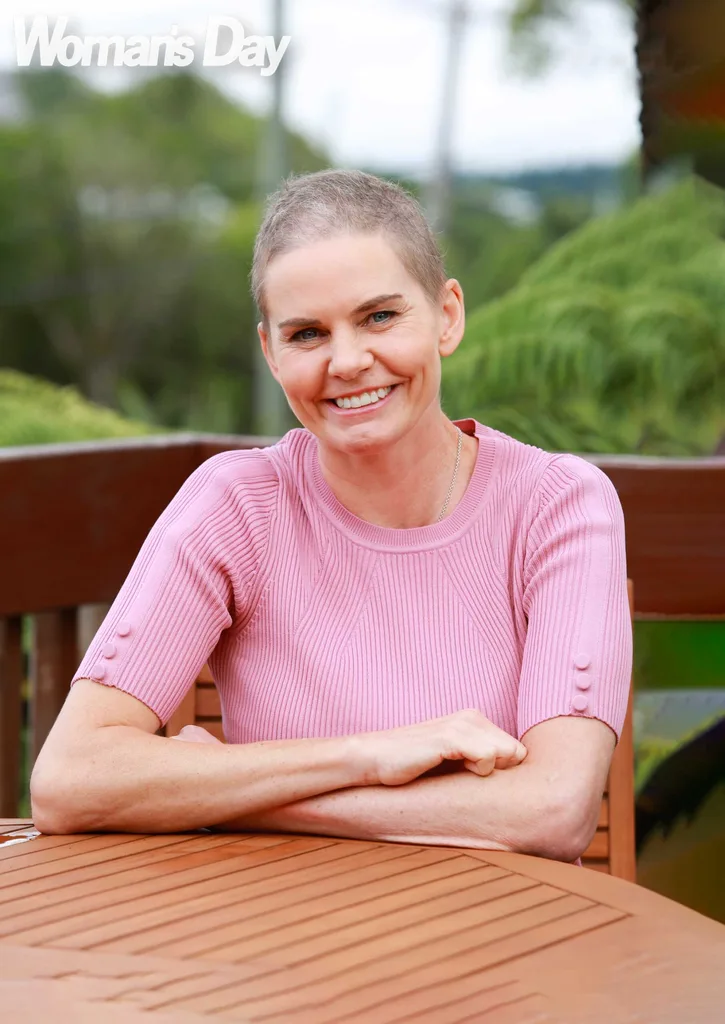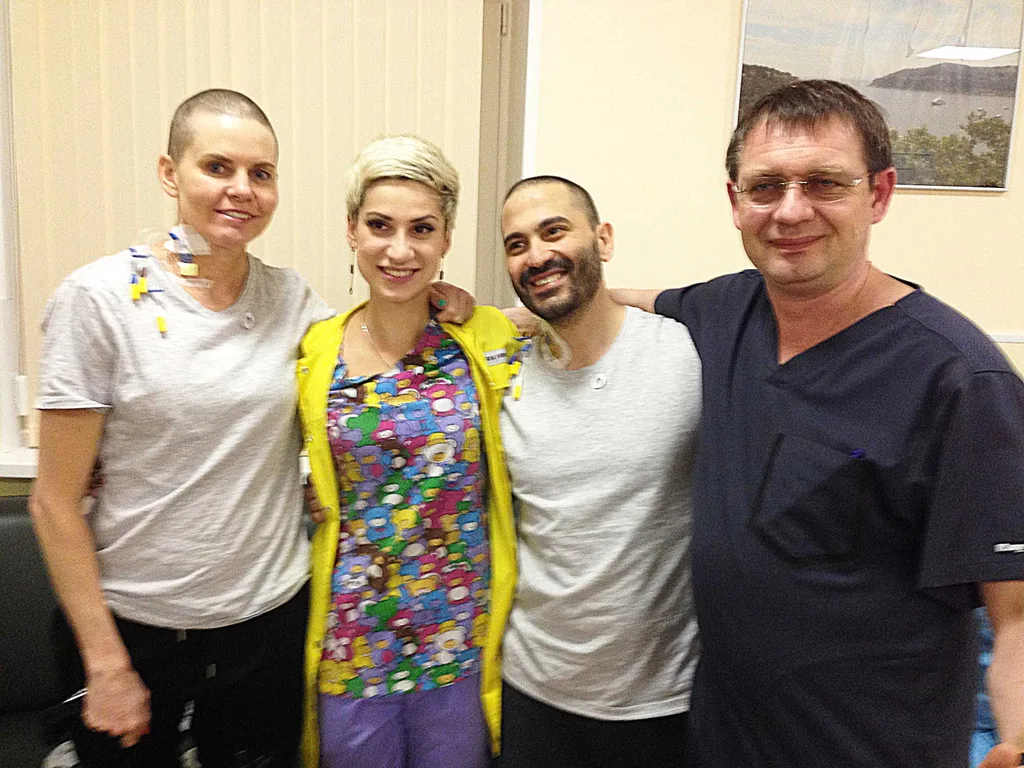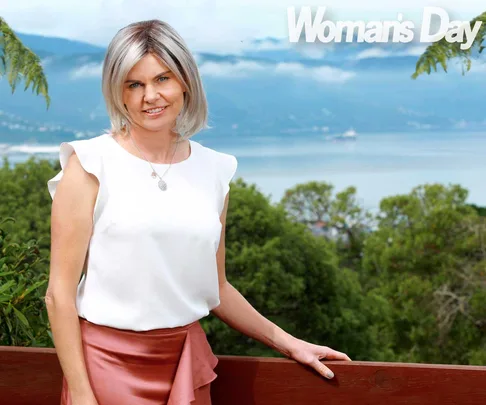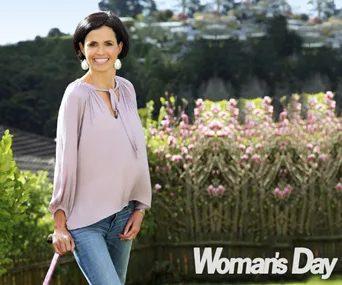At just 44, Nicky Tooley was facing the reality of life without her mobility. Having been diagnosed with multiple sclerosis at 22, her condition had grown progressively worse over the last seven years.
The once energetic single mum, who used to run 45 minutes each day and who thought nothing of hiking for hours around her home in Lower Hutt’s western hills, had reached the stage where even walking around the supermarket was unbearable.
Her feet were numb and sore, she suffered from chronic headaches and pins and needles, and she had become partially blind in one eye. Plus, memory loss, fatigue and an inability to concentrate were affecting her work as an account manager at her brother’s packaging company.
Feeling that she was being robbed of a normal life and a future with her 13-year-old son Zac, Nicky pinned her hopes on an emerging but controversial therapy, hematopoietic stem cell treatment (HSCT), which uses a patient’s stem cells to “reboot” the immune system and halt the progression of the disease.
But first there was the seemingly insurmountable matter of cost to tackle. HSCT is publicly funded in the US, UK, Mexico and Japan, but is not yet available in New Zealand. It comes with a huge $100,000 price tag and no guarantees of a cure.

However Nicky, who tragically lost a sister to a brain tumour just over three years ago, was determined she wasn’t going to end up in a wheelchair. “I always knew I’d try everything before I’d let that happen.”
Encouraged by stories of several other Kiwi women who’d received HSCT in Russia, Nicky spoke to her neurologist and GP about it. Her specialist said it wouldn’t work as she’d had MS for too long and her doctor asked if she had someone to look after Zac if she died.
It took Nicky a year to pluck up the courage to take the first step – contacting renowned Russian haematologist Dr Denis Fedorenko from the National Pirogov Medical Surgical Centre.
“Initially, I was looking to go in May 2020,” Nicky says. “I was scared and dreading it, but I thought, ‘No, I’m getting worse – I have to go sooner.’ So I bit the bullet.”
Her family and friends set up a Givealittle page, and held movie nights, a breakfast and a charity dinner, then sold merchandise to raise the money needed for treatment, airfares and accommodation. Zac’s school chipped in with a karma keg (where proceeds from drinks sold go to charity), while a very generous local businessman, who wished to remain anonymous, donated $25,000.
“He came to one of my fundraising events and saw me break down,” says a very grateful Nicky. “It reduced him and his wife to tears. He said he’d done well in business and wanted to help someone.
I don’t think I would have been able to do it without them.”
Nicky landed in Moscow in October last year with her older sister Janine, 54. It was minus-two degrees and two weeks before her scheduled “stem cell birthday” on November 14. The first step was an MRI, which revealed 50 lesions on her brain and that 95% of her spinal cord was blocked.
“Dr Fedorenko was amazed I was still able to walk. He thought it was only a matter of time before I would be in a wheelchair and he expected without treatment I’d be a quadriplegic within five years.”
A raft of tests to ensure Nicky was well enough to have the treatment followed. She was then given drugs to stimulate stem cell growth before the cells were harvested via a catheter in her neck. She underwent four days of intensive chemotherapy to kill off harmful immune cells, with few side effects other than nausea, “which was managed”, and hair loss.
The stem cells were then returned very slowly in order to minimise any negative reactions. Nicky spent the next nine days in isolation, until tests showed her white blood cell levels were high enough to prevent infection.

With her Russian medical team, including Dr Fedorenko (right).
Back in NZ, Nicky’s anxious mother was looking after Zac. Janine recalls, “Mum was the most worried. But being able to chat to Nicky every day and watch a lot of the procedures via Facebook Messenger really helped allay her fears. She felt that she was part of it all.”
Today, Nicky is counting her blessings as she looks out over a tranquil Wellington Harbour.
She’s on a recommended wheat, gluten and dairy-free diet, and has started going to the gym. She has also become an advocate for HSCT and is part of a group of MS sufferers involved in a video campaign calling on the Prime Minister to look into funding HSCT.
“I want to help other sufferers know about this treatment and to question our health system that doesn’t allow it here. Basically, I want people to know that there’s hope.

Nicky has a solid support crew in son Zac and sister Janine.
“I’m so thankful I had it,” Nicky smiles. “I can walk for longer, my leg is stronger and my eye is better. I’m actually blown away with the results. I know there are no promises that my symptoms will continue to improve, but I also know I’m not going to get any worse. I no longer live with constant worry about what’s going to happen next or how disabled I might become.”
Adds Janine, “I have no doubts that it will work for Nicky. She’s determined to get as fit and well as possible. I think it has changed her whole attitude to life. She is a much more positive and happy person now. It’s been well worth it.”





